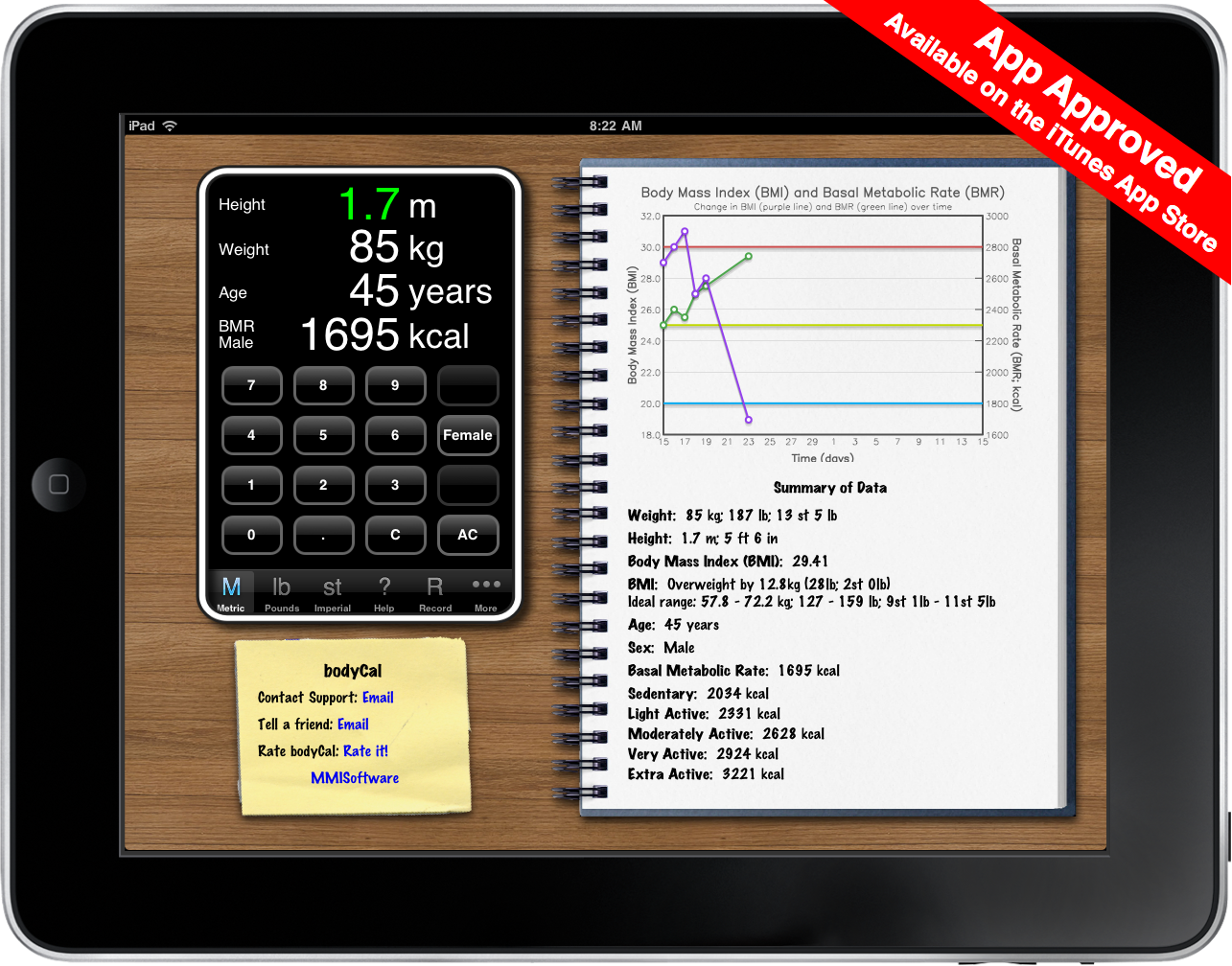
Men’s BMR tends to be around 1600 - 1800. This is because men are generally larger in size and have more muscle mass than women. Men generally need more calories than women and tend to have a higher BMR. Things like illness, exercise, drugs (including nicotine) and even stress and anxiety can all raise your BMR. It also means you need to take in fewer calories in order to lose weight than someone with a higher BMR. It is influenced by age, gender, body size, height, weight, and mass – even the size of your internal organs.Ī low BMR means you need fewer calories in order to sustain life-giving functions like breathing. What is a good BMR?Įverybody’s BMR is different. So, you should always take in, as a minimum, the number of calories you need to maintain basic functions as indicated by your BMR. Not getting enough energy each day can interfere with your body’s basic processes, such as causing reduced brain function, low blood pressure or abnormal heart rate. This is why restrictive ‘crash’ diets are really bad news for your body. Remember, most people need over 1000 calories each day just to maintain their basic, life-sustaining functions. Aim to lose about 0.5 to 1kg (1 to 2lb) a week until you reach a healthy weight for your height. This will ensure steady and sustainable weight loss. Then, you can subtract some calories, creating a deficit, while still staying above your BMR calories.įor weight loss, a general rule of thumb is to create a daily deficit of no more than 500 – 600 calories. This one by the NHS will tell you your recommended daily calorie intake to lose weight if you’re overweight. The best way to get an accurate result is using an online calculator, where you can enter your vital statistics and your activity level. If you have an active job or exercise regularly, you won’t need to cut as many calories to lose weight as someone with a more sedentary life. You should also take into account your level of physical activity. However, we’re all different, so calculating your calories based on your individual specifications will give you the most accuracy. The number should be somewhere between your BMR and the number of calories you need to maintain your current weight.Īs a guide, the average man needs about 2,500 calories and the average woman needs 2,000 calories a day to maintain their weight.

The BMR isn’t a diet tool in itself – but knowing your BMR can help stop you from restricting too many calories, which will leave you lethargic, irritable and hungry. Your BMR is a useful tool in determining how many calories you should be cutting from your daily diet in order to lose weight safely. So, if you have more muscle than fat, then your BMR will be higher than someone with more body fat. How many calories an individual burns to fuel basic bodily functions is their basal metabolic rate (BMR) and varies from person to person.Īn individual’s BMR can vary depending on certain factors, including height, weight, genetics, body composition, age and gender.įor example, muscle burns more calories at rest than fat. We measure how much energy we use to fuel basic bodily functions in calories. So, even when the body is completely at rest or asleep, we are burning energy. We all need energy to fuel breathing, the heartbeat, nervous system communication, digestion, the endocrine system and more. This is calculated using a formula and is based on certain physical characteristics which are unique to you.

This is a score that is used to determine the amount of energy your body needs to carry out the most basic functions which keep you alive whilst you are in a resting state. It’s sometimes written as metabolic basal rate or basal metabolism.

What is basal metabolic rate (BMR)?īMR stands for basal metabolic rate. Read on to find out how your BMR can help you lose weight and keep it off. And behind the scenes, your cells are repairing and rebuilding, your food is digesting, and your temperature is being regulated.Īll these physical functions demand energy from your body, which is where the BMR comes in. There are the obvious things like breathing and your heartbeat pumping blood around your body.

Right now, your body is carrying out thousands of intricate functions. But what is BMR? What does BMR stand for? Knowing your personal BMR can help you understand your body and the way it burns energy.


 0 kommentar(er)
0 kommentar(er)
